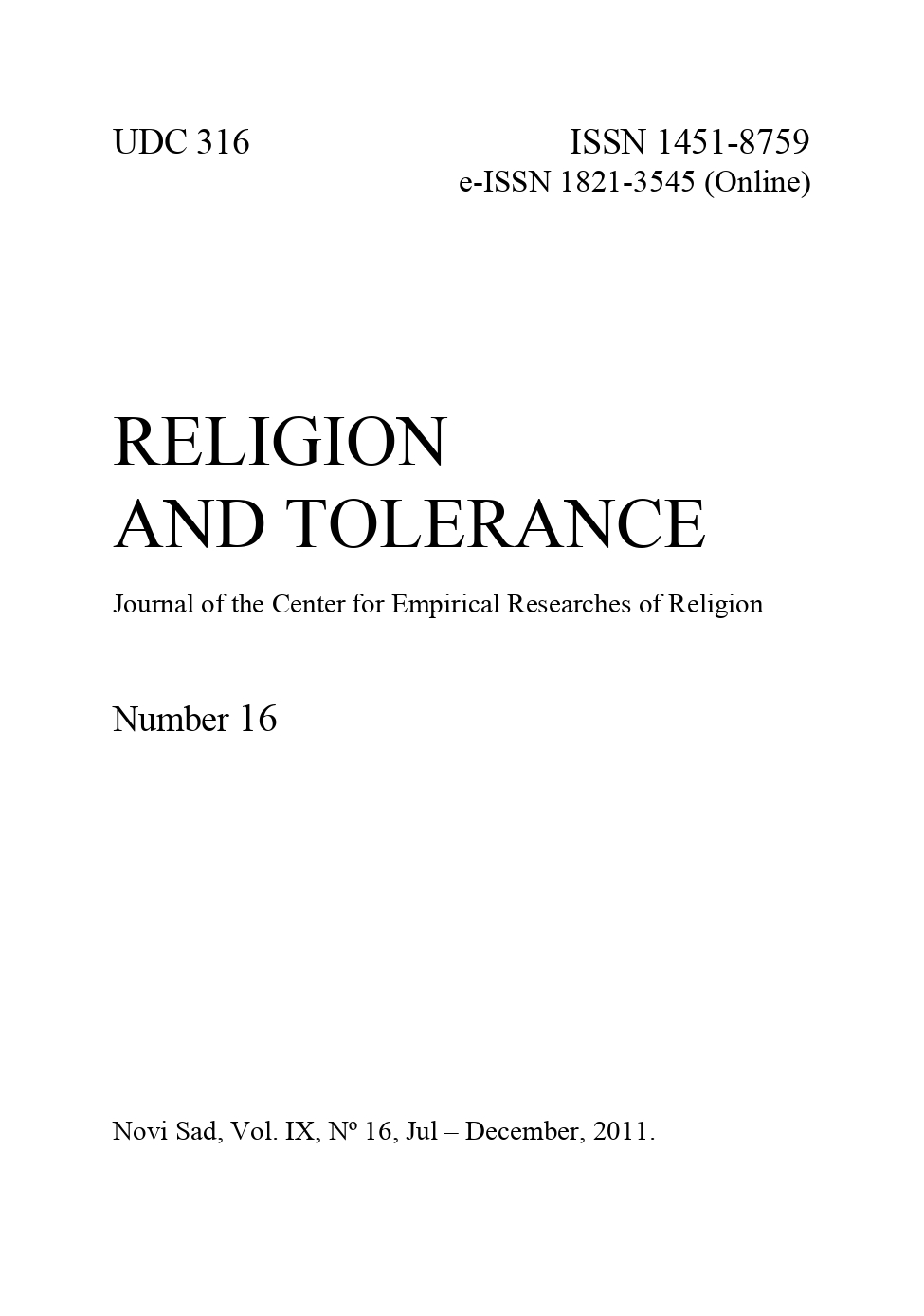MORALNOST, RELIGIOZNOST I POLITIČKA KULTURA TOLERANCIJE
MORALLITY, RELIGIOSITY AND POLITICAL CULTURE OF TOLERANCE
Author(s): Veljko S. DubljevićSubject(s): Politics / Political Sciences, Philosophy, Theology and Religion
Published by: Centar za empirijska istraživanja religije (CEIR)
Keywords: Moral development; Political culture; Religion; Autonomy; Tolerance
Summary/Abstract: This article gives an overview of different theories of moral development, while drawing conclusions for models of religious and political tolerance. After giving a short outline of Kohlberg's stages of morality, as well as Gilligan's alternative conception, the author claims that in the domain of moral development it would be possible to have a strictly formal approach that would not start with moral content (rights or care), and that development could be traced along the preconventional-egoistic, conventional particularistic, and autonomous-universal stages of moral development. Such formal stages are then applied to the development of religion on the levels of individual and community, as well as on the development political culture of tolerance. After a detailed analysis, the author concludes that further empirical corroboration is needed for the hypothesis. Arguments for the validity of the hypothesis can be found in both socialist and liberal political traditions. Namely, Habermas' model of the development of society is founded on the development of morality according to the logic contained in language (from I to They), while Rawls' disfferentiation between types of societies and conception of international justice rest of three stages of moral development. The article concludes that such theoretical considerations provide sufficient reasons for empirical research in the domain of moral development, religion and political culture.
Journal: Religija i tolerancija
- Issue Year: 9/2011
- Issue No: 16
- Page Range: 245-255
- Page Count: 11
- Language: Serbian

